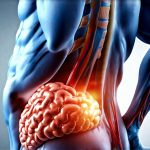Joint stiffness and pain are incredibly common complaints, impacting millions worldwide and significantly diminishing quality of life. Often perceived as isolated issues stemming from wear-and-tear, injury, or genetic predisposition, the underlying causes can be far more complex than initially imagined. Increasingly, research is pointing to a surprising connection between our digestive health – specifically, the state of our gut microbiome – and the prevalence and severity of joint discomfort. This isn’t simply about ‘leaky gut’ being a buzzword; it’s about understanding how the intricate ecosystem within our intestines influences systemic inflammation, immune responses, and ultimately, musculoskeletal health.
The conventional approach to addressing joint pain often focuses on symptom management – painkillers, anti-inflammatory drugs, physical therapy. While these can provide temporary relief, they rarely address the root cause. A growing body of evidence suggests that for many individuals, restoring gut health may be a fundamental step towards long-term improvements in joint function and reduced discomfort. This article will delve into the fascinating relationship between the gut microbiome, inflammation, immune regulation, and its impact on joint stiffness and pain, exploring potential avenues for support and highlighting the importance of a holistic approach to wellness.
The Gut Microbiome & Inflammation: A Core Connection
The human gut harbors trillions of microorganisms – bacteria, viruses, fungi, and others – collectively known as the gut microbiome. This microbial community is not merely passive inhabitants; they actively participate in crucial physiological processes, including digestion, nutrient absorption, vitamin synthesis, and importantly, immune system regulation. An imbalance in this ecosystem, termed dysbiosis, can disrupt these functions and contribute to chronic low-grade inflammation throughout the body. This isn’t just localized to the gut; it’s systemic, meaning it affects virtually all organs and tissues, including joints.
Inflammation is a natural biological response to injury or infection, but when it becomes chronic, it can wreak havoc on our bodies. In the context of joint pain, chronic inflammation breaks down cartilage, damages connective tissues, and exacerbates pain signals. Several mechanisms link gut dysbiosis to increased systemic inflammation. Firstly, an unhealthy gut barrier – sometimes referred to as “leaky gut” – allows bacterial components (like lipopolysaccharide or LPS) to enter the bloodstream, triggering an immune response and driving inflammation. Secondly, certain gut bacteria produce metabolites that either promote or suppress inflammation; imbalances can favor pro-inflammatory pathways. Finally, dysbiosis can impact the diversity of the microbiome, reducing its resilience and ability to regulate immune responses effectively.
It’s important to note that inflammation is a complex process involving multiple players. The gut isn’t solely responsible for joint inflammation, but it’s increasingly recognized as a significant contributing factor, and often one that is overlooked in traditional treatment approaches. The gut-joint axis – the bidirectional communication between the gut microbiome and joints – is emerging as a critical area of research in understanding chronic musculoskeletal conditions. Understanding gut biome diversity can be helpful here.
Immune System Modulation & Autoimmunity
Beyond inflammation, the gut microbiome plays a crucial role in shaping and modulating our immune system. Approximately 70-80% of our immune cells reside within the gut-associated lymphoid tissue (GALT), making the intestinal environment central to immune function. The diverse microbial community ‘educates’ the immune system, helping it distinguish between friend and foe – harmless microbes versus pathogenic invaders. This education process is vital for preventing inappropriate immune responses that can lead to autoimmune diseases.
Autoimmunity occurs when the immune system mistakenly attacks the body’s own tissues. Several autoimmune conditions, like rheumatoid arthritis (RA) and psoriatic arthritis, are characterized by chronic joint inflammation. Research suggests a strong link between gut dysbiosis and the development or exacerbation of these autoimmune disorders. Specifically, imbalances in the microbiome can lead to molecular mimicry – where microbial proteins resemble self-proteins, causing the immune system to attack both.
Furthermore, alterations in gut permeability (leaky gut) can expose the immune system to antigens that it hasn’t encountered before, triggering an autoimmune response. The gut microbiome also influences the balance between different types of T cells – regulatory T cells (Tregs), which suppress immune responses and prevent autoimmunity, and Th17 cells, which promote inflammation. Dysbiosis often leads to a decrease in Tregs and an increase in Th17 cells, further contributing to autoimmune processes and joint inflammation. Restoring gut health, through dietary changes and potentially probiotic supplementation, aims to rebalance the immune system and reduce its attack on healthy joints. It’s important to understand the connection between gut health and autoimmune responses.
Dietary Strategies for Gut & Joint Health
Diet is arguably one of the most powerful tools we have for influencing both gut health and joint function. A diet rich in whole, unprocessed foods provides the necessary nutrients for a thriving microbiome and helps minimize inflammation. Here are some key dietary considerations:
- Prioritize Fiber: Fiber serves as food for beneficial gut bacteria, promoting their growth and diversity. Include plenty of fruits, vegetables, legumes, and whole grains in your diet. Aim for at least 25-30 grams of fiber per day.
- Reduce Sugar & Processed Foods: High sugar intake and processed foods can feed harmful bacteria and contribute to inflammation. Minimize consumption of sugary drinks, refined carbohydrates, and heavily processed snacks.
- Incorporate Fermented Foods: Fermented foods like yogurt (with live cultures), kefir, sauerkraut, kimchi, and kombucha contain probiotics – live microorganisms that can help replenish the gut microbiome.
- Consider an Elimination Diet: For some individuals, specific food sensitivities can contribute to inflammation and joint pain. An elimination diet, guided by a healthcare professional, can help identify trigger foods.
It’s important to remember that dietary needs are individual. What works for one person may not work for another. Working with a registered dietitian or nutritionist can provide personalized guidance based on your specific health status and sensitivities. Understanding gut pain and additives in food is also important to consider.
Probiotic & Prebiotic Supplementation: A Targeted Approach
While diet is foundational, probiotic and prebiotic supplementation can offer targeted support for gut health. Probiotics introduce live beneficial bacteria into the gut, while prebiotics provide food for those bacteria to thrive. However, it’s crucial to approach supplementation thoughtfully.
- Strain Specificity: Not all probiotics are created equal. Different strains have different effects on the body. Research is ongoing to determine which strains are most effective for specific conditions, including joint pain. Consulting with a healthcare professional can help you choose the right probiotic strain(s).
- Quality Matters: Choose reputable brands that guarantee the viability of their probiotics and provide clear labeling information. Look for products that have been third-party tested.
- Prebiotic Support: Prebiotics – such as inulin, fructooligosaccharides (FOS), and galactooligosaccharides (GOS) – enhance probiotic activity. Include prebiotic-rich foods in your diet or consider a prebiotic supplement.
Supplementation should be viewed as an adjunct to, not a replacement for, a healthy diet and lifestyle. It’s also important to note that some individuals may experience temporary digestive upset when starting probiotics; this is usually mild and resolves within a few days. A strong microbiome can help prevent digestive gas.
Lifestyle Factors Beyond Diet & Supplements
Gut health isn’t solely determined by what we eat. Several other lifestyle factors play significant roles.
- Stress Management: Chronic stress negatively impacts the gut microbiome, increasing inflammation and disrupting immune function. Techniques like meditation, yoga, deep breathing exercises, or spending time in nature can help manage stress levels.
- Regular Exercise: Physical activity promotes gut microbial diversity and reduces inflammation. Aim for at least 30 minutes of moderate-intensity exercise most days of the week.
- Adequate Sleep: Sleep deprivation disrupts the gut microbiome and impairs immune function. Prioritize getting 7-9 hours of quality sleep each night.
- Judicious Antibiotic Use: While antibiotics are sometimes necessary, overuse can disrupt the gut microbiome and lead to dysbiosis. Only take antibiotics when prescribed by a healthcare professional and consider probiotic supplementation during and after antibiotic treatment (under guidance).
In conclusion, the relationship between gut health and joint stiffness or pain is complex but increasingly well-established. Addressing gut imbalances through dietary changes, targeted supplementation, and lifestyle modifications may offer a promising avenue for managing chronic joint discomfort and improving overall wellbeing. It’s crucial to remember that this isn’t about quick fixes; it’s about cultivating a healthier internal environment that supports optimal health and resilience. Understanding gut pain and emotional triggers can help manage chronic conditions. The gut microbiome also plays a role in managing gut microbiota and diabetes. Finally, recognizing gut health and allergies can provide a more holistic approach to wellness.


















